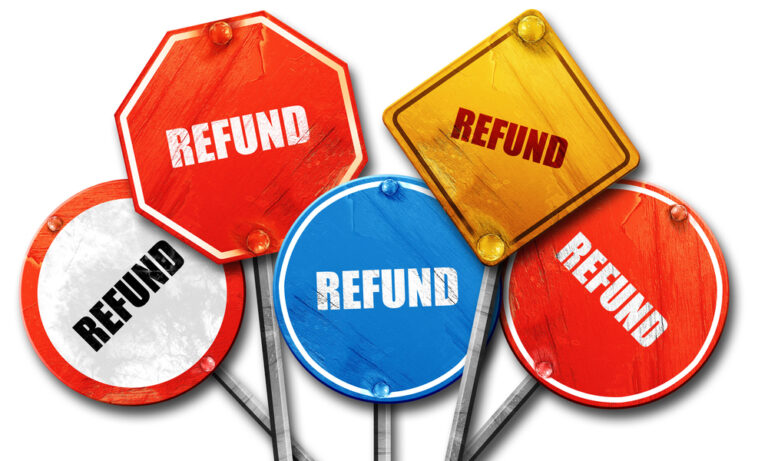What is a Chargeback Fee?

“How much?” is perhaps the most-asked question of all time. Unfortunately, in the payments industry at least, it’s also the most difficult to answer. That’s especially true when it comes to how much do chargebacks cost for merchants. So many variables come into play when it comes to chargeback fees, including the type of business it is, which banks and card schemes are involved, and the number of chargebacks the merchant processes; and then there’s the ancillary costs of time and effort spent dealing with chargebacks. Perhaps the most accurate answer possible to “how much are chargebacks” is “they’re expensive.”
What are chargebacks and what are chargeback fees?
Chargebacks were created back in the 1970s as a means to build consumer confidence in the then-emerging technology of credit cards. Chargebacks afforded cardholders an opportunity to get their money back through a special request that is not handled by the merchant but rather by the bank. It is an anti-fraud tool that is set up to allow the customer to cancel any transactions they did not authorize.
The original intent of the chargeback was to give cardholders recourse to deal with fraudulent purchases and intransigent merchants. With that in mind, a fee is assessed to the chargeback to cover the banks’ costs for dealing with a dispute the merchant should have resolved.
Of course this process is open to abuse. And so, merchants have a right to dispute a chargeback, and prove the claim was unwarranted. But even if a merchant wins the dispute and gets their money back, the fee is not going to be refunded by the bank — it is lost revenue.
What is a chargeback fee at a bank?
A number of factors determine the actual amount of the chargeback fee; it’s not a flat sum every time. The acquiring bank assesses the fee to cover their costs, and the processor’s costs for handling the chargeback. Different services and types of products require different fees.
Fees vary somewhere between $20 and $60, and if a business is labeled as a high-risk, fees will be significantly higher.
And that doesn’t include the merchant’s sunk costs of fulfillment, taxes, plus time and effort all add up. If we talk numbers, some studies say that for every chargeback dollar, the merchant loses $2.40. Imagine having $100 in chargebacks — that would be $240 if we include fees and sunk costs.
That’s just the accounting of a single chargeback. Total chargebacks add up over time as well. Processors and banks are also looking at a merchant’s sales-to-chargebacks ratio. Even if the merchant disputes a chargeback and wins, those chargebacks still count against the ratio, which can lead to more and higher fees. If the ratio exceeds a certain threshold, typically when 1% of sales are chargebacks, the merchant enters a monitoring program set out by the card schemes. Monitoring programs introduce yet more fees to the total cost of chargebacks, and also affect the credit card fees charged to merchants.
Monitored merchants are reviewed to find indicators that their situation with chargebacks is getting better. If their chargeback rates are not going down, the processing fee charge goes up. This cycle continues until banks decide to blacklist the merchant, which is the greatest cost of all.
VISA Chargeback Fees and Remediation
VISA has an elaborate fee structure to charge merchants with chargeback problems big and small. Fees start in that $20-$50+ range per chargeback. Then, let’s say your ratio hits .75%, and you were paying $35 per chargeback. Your business goes into the Visa Chargeback Monitoring Program (VCMP). Right away, this costs you time and effort because you are then required to present a plan of action to VISA on how to remediate it.
If your ratio does not decrease as planned, your non-compliance assessment goes from $35 per chargeback to $50. After three months of that and no improvement, non-compliance goes up to $100/chargeback and you get hit with a $25k review fee on top. Continued non-compliance puts you in serious danger of losing your VISA processing, which will more than likely cost you everything.
MasterCard Chargeback Fees and Assessments
MasterCard’s fee structure is similar to VISA’s, but more mathy. MasterCard authorizes its issuers to charge $25 USD per chargeback, under its Progressive Handling Fees. They also have a chargeback monitoring program for “frequent flyers”; their threshold to enable the program is 1% chargebacks-to-sales. Once in monitored, merchants are also charged a violation assessment on top of the chargeback fees.
So let’s say a merchant has 50 chargebacks and their ratio is 1.5%. The merchant owes the issuer $1250 (50 chargebacks at $25 each). The issuer reimbursement is multiplied by the chargeback ratio ($1250 x 1.5) which puts the violation assessment at $1875.
How can merchant reduce their chargeback fees?
Although merchants cannot really reduce chargeback fees, they can reduce chargebacks from happening in the first place, thereby reducing their overall costs in dealing with them. There are a number of things merchants can do to create an environment that will reduce chargebacks.
- Customer service that is always available and quick to answer any questions
- PCI Compliant gateways
- Good billing descriptors, that are clear and easy to read so cardholders recognize the transaction file for chargebacks
- Clear refund policies without any ifs or buts
- Clear product or service descriptions
- Managing expectations and delivering products or services as promised
- Monitoring alerts and refunding fraudulent purchases.
One more thing to look out for: chargeback rules and policies are not set in stone; Acquirers, issuers, and processors are always shifting their policies. Merchants must be quick on their feet to adapt accordingly. Aside from friendly fraud cases, merchant error is the leading cause of chargebacks, either in the process of managing the transaction or in fulfilling them. Merchants therefore need to keep the errors to a minimum.
How to protect yourself from rising credit card chargeback fees
An ounce of prevention is worth a pound of cure, but chargebacks can still get through the line and wreak havoc on your processing. Chargeback management and representment can effectively drive your costs and ratios down, but they are time- and resource-intensive. Outsourcing your chargeback management is the best strategy to defend against persistent chargebacks.
ChargebackHelp provides chargeback alert systems that can eliminate your chargeback pain-point, recover lost revenue and improve your payment processing performance. We react in a timely manner and use our connections with various banks to stop the process, giving you enough time to quickly resolve the issue and give a refund, making chargebacks go away before ever coming to be and bringing all of the increased fees and consequences with them.
Chargebacks should not be considered a default cost of doing business, if merchants have the proper tools at their disposal, and always listen to their customers, ready to come halfway to resolve any issues. Contact ChargebackHelp today to get your free chargeback analysis report. Drop us a chat down on the right, shoot us an email, or go old-school and call us 1.800.975.9905







